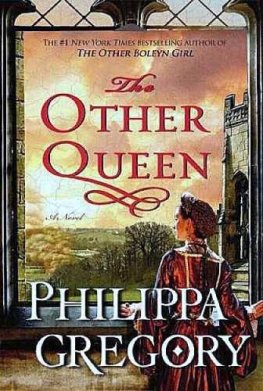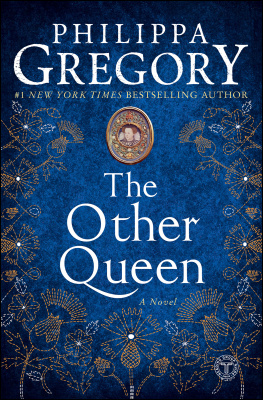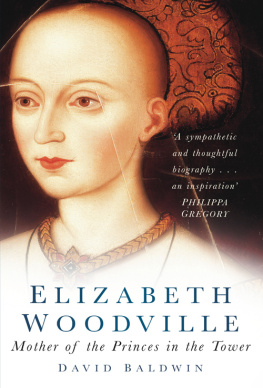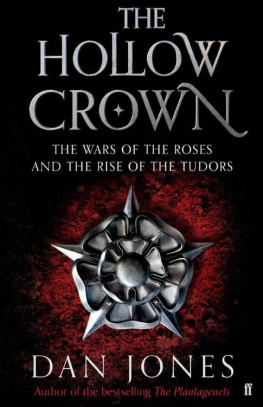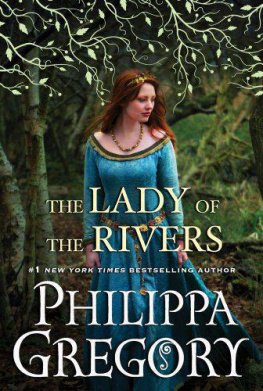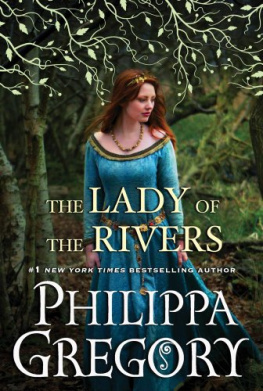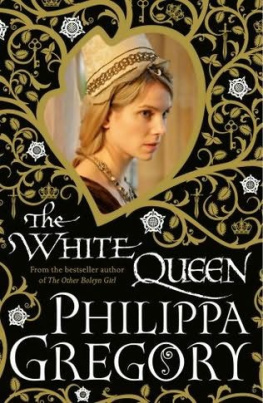
Thank you for purchasing this Touchstone eBook.
Sign up for our newsletter and receive special offers, access to bonus content, and info on the latest new releases and other great eBooks from Touchstone and Simon & Schuster.

or visit us online to sign up at
eBookNews.SimonandSchuster.com

Historical Novels by Philippa Gregory
The Cousins War
The White Queen
The Red Queen
The Lady of the Rivers
The Tudor Court
The Constant Princess
The Other Boleyn Girl
The Boleyn Inheritance
The Queens Fool
The Virgins Lover
The Other Queen
The Wideacre Trilogy
Wideacre
The Favored Child
Meridon
The Wise Woman
Fallen Skies
A Respectable Trade
Earthly Joys
Virgin Earth
Books by David Baldwin
Elizabeth Woodville: Mother of the Princes in the Tower
The Kingmakers Sisters: Six Powerful Women
in the Wars of the Roses
The Lost Prince: The Survival of Richard of York
Stoke Field: The Last Battle of the Wars of the Roses
Robin Hood: The English Outlaw Unmasked
Books by Michael Jones
The Kings Mother: Lady Margaret Beaufort, Countess
of Richmond and Derby
Bosworth 1485: The Psychology of a Battle
Agincourt 1415
Total War: From Stalingrad to Berlin
Leningrad: State of Siege
The Retreat: Hitlers First Defeat
Stalingrad: How the Red Army Triumphed


| Touchstone
A Division of Simon & Schuster, Inc.
1230 Avenue of the Americas
New York, NY 10020
www.SimonandSchuster.com |
Copyright 2011 by Philippa Gregory, Michael Jones, and David Baldwin
All rights reserved, including the right to reproduce this book or portions thereof in any form whatsoever. For information address Touchstone Subsidiary Rights Department, 1230 Avenue of the Americas, New York, NY 10020.
First Touchstone hardcover edition September 2011
TOUCHSTONE and colophon are registered trademarks of Simon & Schuster, Inc.
The Simon & Schuster Speakers Bureau can bring authors to your live event. For more information or to book an event contact the Simon & Schuster Speakers Bureau at 1-866-248-3049 or visit our website at www.simonspeakers.com.
Manufactured in the United States of America
10 9 8 7 6 5 4 3 2 1
Library of Congress Control Number: 2011933893
ISBN 978-1-4516-2954-5
ISBN 978-1-4516-2956-9 (ebook)
CONTENTS

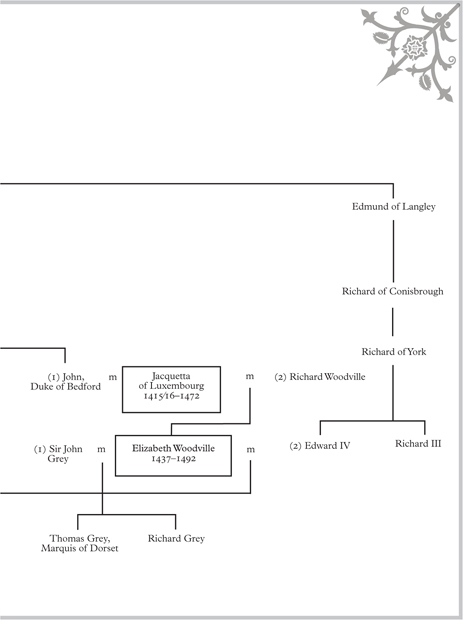
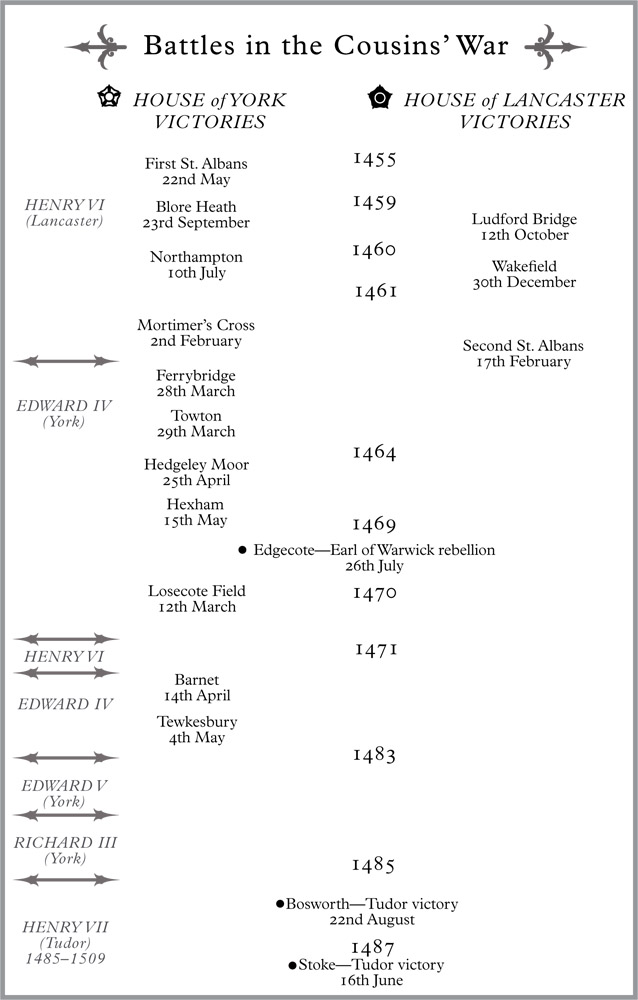
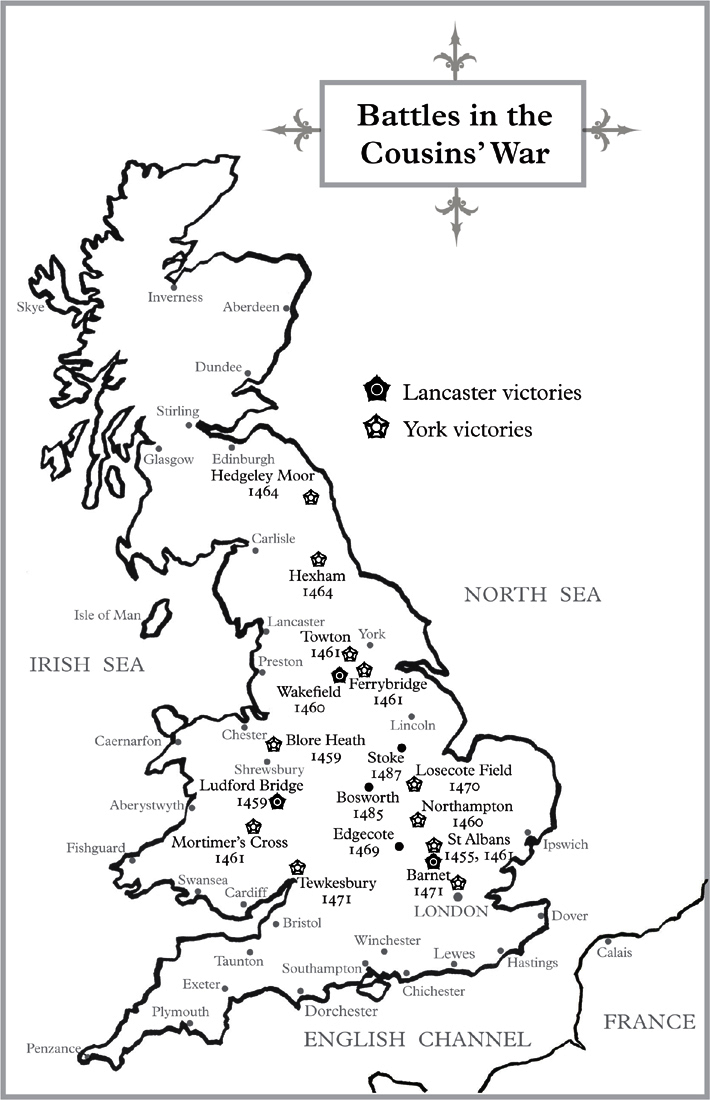
INTRODUCTION
Philippa Gregory
This is a new sort of book for me; a collection, written by myself and two other historians, of three short lives of three extraordinary women: Jacquetta, Duchess of Bedford; Margaret Beaufort; and Elizabeth Woodville. This book came about because so many readers ask me for the true stories on which I base my novels, and there is nothing readily available for these three: The Lady of the Rivers (2011), The Red Queen (2010), and The White Queen (2009). The existing biographies of Margaret Beaufort and Elizabeth Woodville were out of print when I started my research, and so I worked from rare secondhand copies. I invited the authors, David Baldwin and Michael Jones, each to write a short essay on their subject for us to jointly publish here.
There was no biography at all of Jacquetta, and I realized that if I wanted to find out about her life, I would have to do my own original research from the early documents, and trace the brief references to her that occur throughout other histories. As a woman who was present at many great events, and a kinswoman of both royal houses of England, she is often mentioned in the histories of her time; but her story has never before been told. To trace her life, I had to read accounts of the lives of her contemporaries and of her times, forever looking out for a reference to her, her husbands, or her family. This way I have managed to trace her from her childhood in English-held France, to her family home of Luxembourg, through her first marriage into the royal House of Lancaster, into her second marriage, when she lived at the royal courts of Lancaster and York and in her country house in England. If she was present at a great event, she was sometimes mentioned by name; once or twice she was one of the primary actors. Most of the time the record does not speak of her, and I can only speculate as to what she was doing.
In the course of writing the biography of a woman who was present at the events but all but missing from the record, a woman who is hidden from history, I had to think about what it means to write the different forms of history-based writing. In one week I wrote some of this nonfiction biography, some pages of the novel, and a synopsis for a drama screenplay that is based on the novels. All of these are grounded on the few known facts of Jacquettas life, and all of them (including the history) are works of speculation, imagination, and creativity.
WHY WRITE A HISTORY OF THESE WOMEN?
Why should one bother to write the history of a woman such as Jacquetta, Duchess of Bedford? Or of Elizabeth Woodville? Or of Margaret Beaufort? Does Jacquettas absence from the records of her own time indicate that she is no great loss to the history books of today? Of course not. Jacquetta is absent from the records of her time because the letters, chronicles, and journals written then mostly told of public events, and as a woman, excluded from formal political power and military service, Jacquetta was not a primary actor. Occasionally, she was at the forefront, and then we find her recorded, for instance, accused of witchcraft, or kidnapped to Calais; sometimes she was an actor representing the queen or king; sometimes she was in a conspiracy, and her work is still secret. So she does have a presence in the historical records if they are carefully examined.
But the interests of medieval chroniclers were not the same as ours. Historians today are interested in women, in the dispossessed, in the marginal, in the powerless. In particular, we are interested in womens historywomen as a group, and individual women. Historians would now agree that an account of a society that does not look at the lives of half of the population is only half an account. Jacquettas life, as a prominent medieval woman, can tell us much about the queens court, about elite life, about marriage, loyalty, social mobility, sex, childbirth, and survival. She is interesting as a representative of her time and class as well as her gender. The medieval historians do not record such things; we have to look for them through the records, reading between the lines.
Next page



